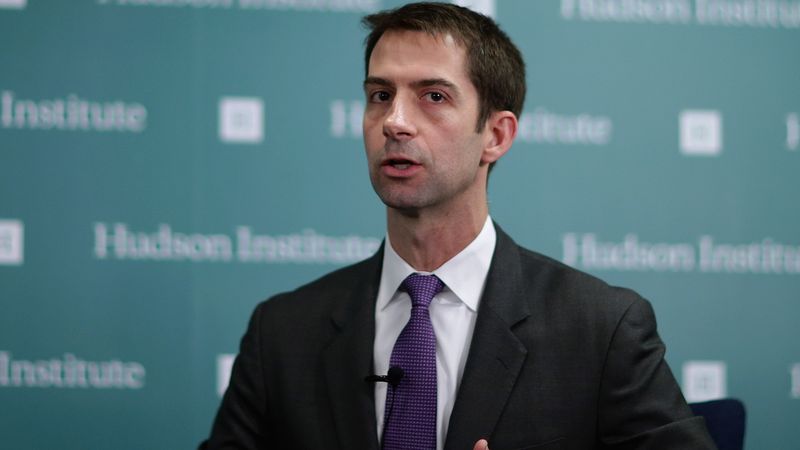
Sen. Tom Cotton, R-Ark., introduced a bill late last week that looks to protect advanced AI chips from falling into the hands of U.S. adversaries through stricter oversight of chips – and research into potential chip security mechanisms.
The Chip Security Act would direct the Commerce Department to require a “location verification mechanism” on advanced chips subject to export controls. Under the bill, companies would have six months from the law’s enactment to implement these location-tracking systems.
It would also require the exporters of these chips to report to the Commerce Department’s Bureau of Industry and Security (BIS) if their products have been diverted from their intended destination or tampered with.
“We must do better at maintaining and expanding our position in the global market, while safeguarding America’s technological edge. With these enhanced security measures, we can continue to expand access to U.S. technology without compromising our national security,” Sen. Cotton said in a May 9 press release.
The legislation would also direct the Commerce Department and the Department of Defense (DoD) to study “other potential chip security mechanisms in the next year” and establish requirements over the next few years for implementation, “if appropriate.”
The Commerce Department and DoD would need to assess the most up-to-date security mechanisms annually for three years, as well as decide if any new mechanisms should be required.
The senator’s bill would also direct the Commerce Department to make recommendations annually for three years on “how to make export controls more flexible, thus streamlining shipments to more countries.”
The bill comes after the Trump administration confirmed last week that it would rescind a Biden-era “AI diffusion rule” that would have curbed the export of advanced AI chips.
A spokesperson from the Commerce Department’s BIS said the AI diffusion rule was “overly complex, overly bureaucratic, and would stymie American innovation.”
“We will be replacing it with a much simpler rule that unleashes American innovation and ensures American AI dominance,” the BIS spokesperson told MeriTalk.
